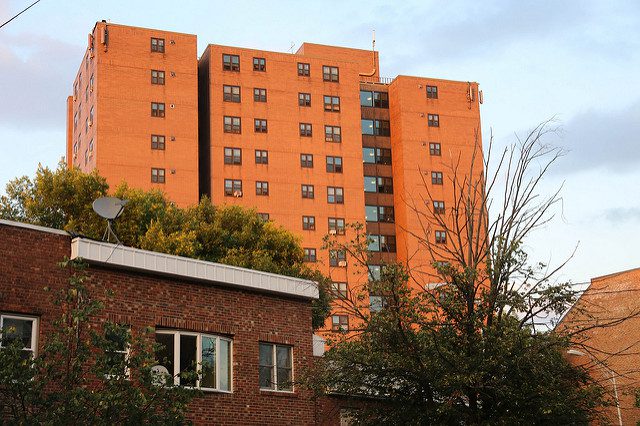As the ACORN Tenant Union comes near to completing its first full year of organizing public housing residents, with 150 developments organized representing some 38,000 public housing tenants across the country, we were more than a little interested to hear about Joe Shuldiner’s comments in a Shelterforce interview.
“I don’t agree that you have to be organized against the housing authority,” says Shuldiner in one of his most telling comments in the interview. “You have to say the conditions I live in are the enemy.”
And having said that, ACORN would ask, then what? How do residents organize against the conditions without organizing against the housing authority? The housing authority, after all, controls the modernization funds that would rectify the conditions. The housing authority provides the management that can screen the tenants, provide timely repairs, treat residents with dignity and respect. The housing authority applies for or signs off on proposals for funding for more security and crime prevention programs.
The housing authority, in other words, has the most immediate power to improve the conditions that Shuldiner describes as the enemy. Must the housing authority, then, be the enemy?
It’s up to the housing authority. In our last year of organizing, we have seen a number of housing authorities who chose that role for themselves. Take the Norwalk Housing Authority in Connecticut, for example. When tenants organized with the ACORN Tenants Union in Norwalk, Curtis Law, the Executive Director of the housing authority, refused to come out to the developments to meet with them. The tenants, of course, took their demands for a meeting to Mr. Law at his office, and won. They then proceeded to win again on repair issues. The housing authority director chose to be the enemy of the tenants in Norwalk.
Or look at the New York City Housing Authority. When tenants proposed to meet in the community room at LaGuardia Houses, management locked the door. When they moved the meeting to a tenant’s apartment, management called the police to the apartment and residents wishing to attend the meeting had to pass six uniformed police officers standing at the door to a private apartment.
In Aurora, Illinois, the Housing Authority chose to oppose the tenants by issuing an eviction warning to a tenant leader the day after she dared to speak to the press at a Board of Commissioners meeting.
The Oakland, California, Housing Authority offered the president of the Chestnut Courts resident council a new, much needed recreation program for children and teens if the resident council would break off its relationship with the ACORN Tenants Union.
Must tenants organize against such housing authorities? Obviously, housing authorities who fear independent organization in broad-based participatory tenant associations will find tenants taking an oppositional stance; the housing authorities leave them no choice.
The fact is, organizers and leaders know that you can’t win at the negotiating table what you can’t win on the street. If tenants try to negotiate before they have given the housing authority a good taste of the kind of numbers they can move and the kind of tactics they are ready to use, the housing authority will be confused about its role in negotiations, and so will the tenants.
A housing authority director who attended a meeting on the future of public housing recently was heard to remark, “We don’t mind the tenants organizing, but they shouldn’t be organizing like a labor/management thing. They should get out of the way and let management get the job done!”
It is exactly the “labor/management thing” that the ACORN Tenants Union seeks: a relationship between powerful forces who are seeking through negotiation toward written contract a way to resolve differences and identify mutual interests. In Minneapolis this year, the housing authority made a decision to stop its years-long battle with the Minneapolis Highrise Representative Council and instead forge a working relationship with this ATU affiliate. To its surprise, the housing authority found the residents organization was willing to join it in a lobbying campaign to win back the modernization funds Congress was threatening to cut.
For years public housing authorities have been the bastions of plantation politics in America: many of them operate as if one must give up one’s rights to decent, safe living conditions and basic dignity and respect in exchange for an affordable apartment. The only way to change the balance of power in these housing authorities is to organize the residents into independent, broad-based participatory tenant organizations that are active in fighting for timely repair schedules, aggressive modernization programs and jobs for the residents. Most public housing authorities will view such organization as a direct threat to their entrenched power, and they will be right. But what will come out of the organizing struggles over time will be tenant organizations that can sit as powerful players across the negotiating table from newly respectful housing authorities, joining together from time to time in partnerships of mutual interest, but always understanding Frederick Douglass’ first rule of organizing: Power concedes nothing without a demand.




Comments